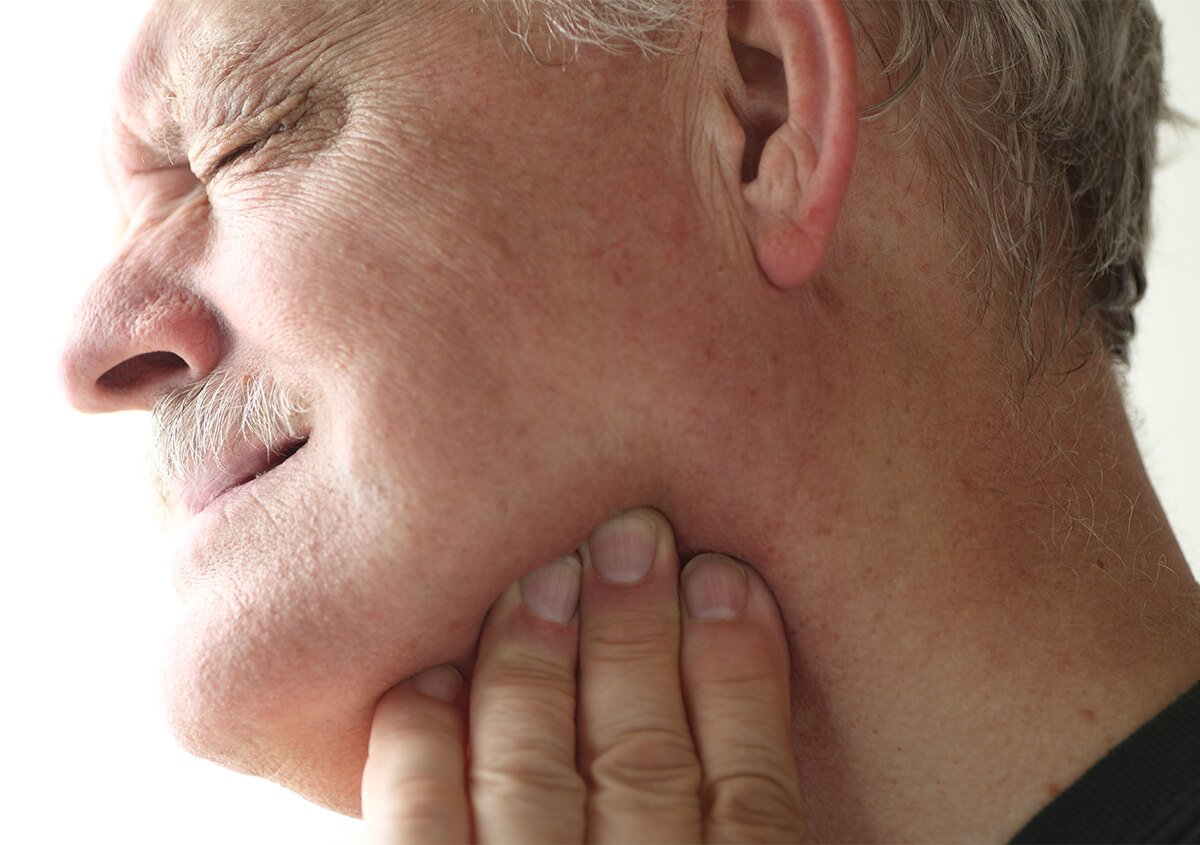

11
Nov
TMJ pain relief Tips and Treatment

Do you hear a clicking sound in your ears when you yawn? Do you have pain in your ears when chewing? Does your jaw lock or freeze? If you’ve answered “yes” to these questions, this may indicate TMJ dysfunction. Riverside Dental Clinic in Drumheller, Alberta, is happy to provide advice on treating TMJ pain. If at-home rest and therapies do not work, professional TMJ treatment may be needed to address the underlying cause of the pain.
Causes of TMJ pain
TMJ stands for “temporomandibular joint” and is located where the upper and lower jaws meet. If this joint is not working properly, this may indicate a TMJ disorder that can be caused by arthritis, bruxism, or stress. Bruxism is caused by stress and involves clenching the jaw muscles or grinding the teeth. This often happens at night as most patients are unaware that they grind their teeth while sleeping.
Signs and symptoms of TMJ disorders may vary from patient to patient, but the most common symptoms include:
- Headaches or pain behind the eyes
- Earaches
- Popping or clicking sounds when opening your mouth
- Pain in your ears when eating or yawning
- Jaws that freeze or lock
- Jaw tenderness
- A shift in how the jaws meet or work
Tips on how to treat TMJ pain
Relieving your TMJ discomfort may include at-home therapies or dental interventions. Consider the following tips to treat your TMJ pain:
- Rest your jaw. Avoid making exaggerated or wide movements with your mouth, such as yawning or yelling. Choose soft foods instead of hard or chewy items that require extra chewing motions.
- Apply heat or ice. As with any injury, heat and ice help reduce pain. Ice minimizes inflammation and pain, while heat improves blood flow and relaxes the muscles. Use heat or ice in 20-minute increments to relieve TMJ discomfort.
- Find an outlet for stress. When stressed, many people hold that feeling in their jaws. Clenching the jaw muscles causes pain and inflammation. Reduce your stress through meditation, yoga, exercise, or going for a walk.
- Get a good night’s sleep. Rest allows your body to heal and is important for your overall health. To reduce jaw pain, sleep on your back and not on your stomach, as this puts pressure on your jaw. Pillows should be used to support your head and neck.
- Maintain good posture. Lounging in chairs, slumping over, and hunching your shoulders affect your neck, spine, and jaw. Correct your posture by standing with your shoulders back or sitting in a chair with pillows for support.
Appointment Request
Get TMJ treatment in Drumheller, Alberta
As with any dental problem, early detection and diagnosis are important. Detecting TMJ disorders means less discomfort for the patient and being able to eat, speak, and yawn normally. Once the underlying cause of TMJ pain is diagnosed, the dentist can determine an appropriate treatment plan. Dental treatments may include an oral appliance or mouthguard, correction of dental issues, or Botox injections.
For more information on treating TMJ pain, contact Dr. Kenneth Poznikoff and his experienced team at Riverside Dental Clinic in Drumheller, AB at (833) 575-1855.



